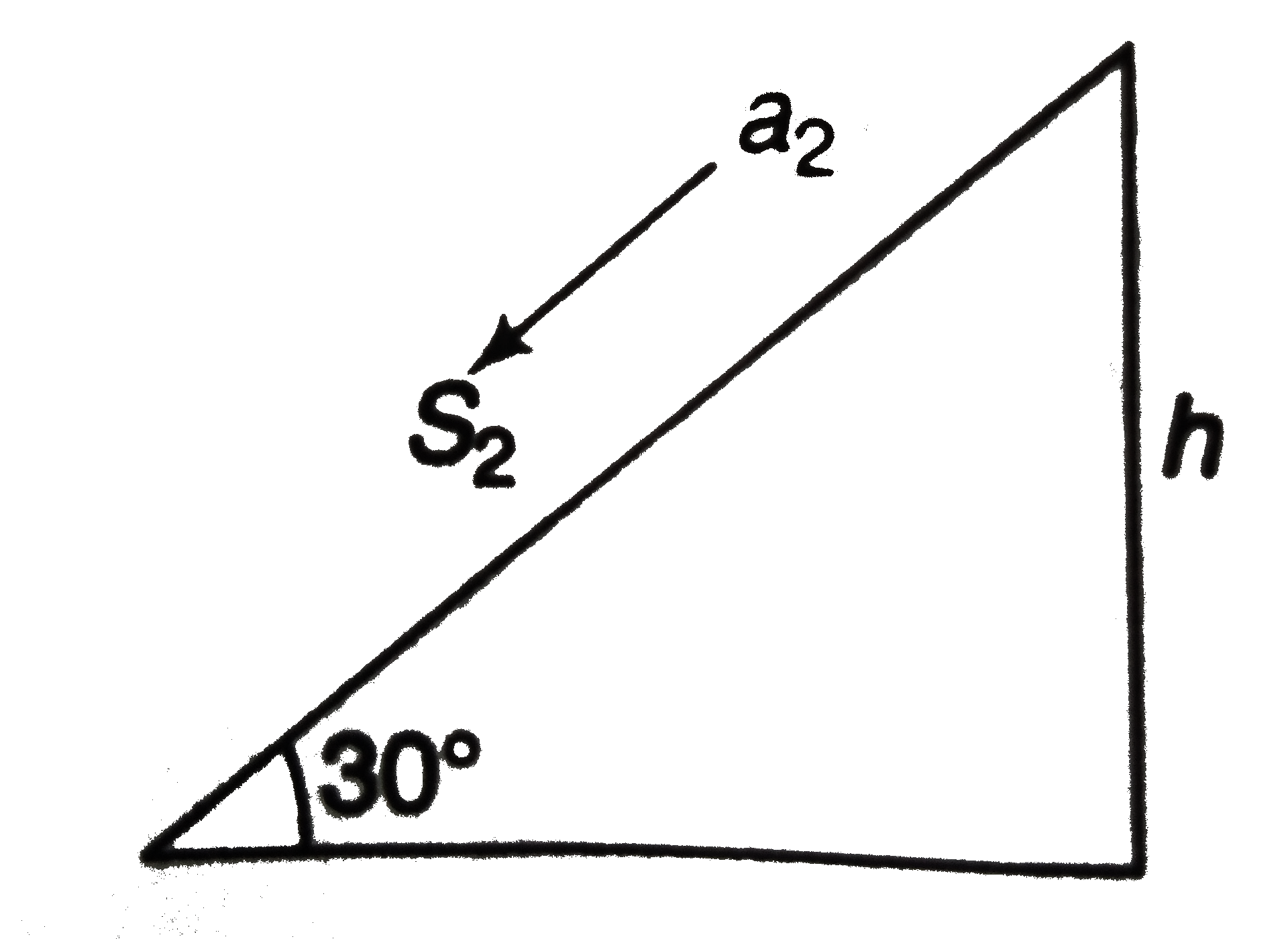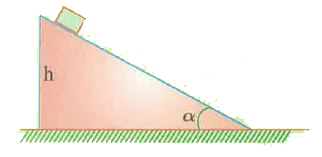A disc of mass m=50g slides with the zero initial velocity down an inclined plane set at an angle α=30∘ to the horizontal, having traversed the distance l=50cm along the horizontal plane, the disc stops. Find the work performed by the friction forces over the whole distance, assuming the friction coefficient k=0.15 for both inclined and horizontal planes.
Retadation on horizontal surface,
a1=μ=0.15×10=1.5m/s2
Velocity just entering before horizontal surface,
v=√2a1S1
=√2×1.5×0.5
√1.5m/s
 .
.
Acceleration on inclined plane,
a2=gsinθ−μgcosθ
=10×12−0.15×10×√32
=3.7m/s
v=√2a2S2=√1.5
∴S2=1.52a2=1.52×3.7=0.2m
h=S2sin30∘=0.1m
Now work done by friction
=−[∈itialmechanicale≠rgy]
=−mgh=−(0.05)(10)(0.1)
=−0.05J
Similar Questions
A disc of mass m slides with the zero initial velocity down an inclined plane of inclination θ to the harizontal, having traveled the distance d along the horizontal plane, the disc stops. Find the work performed by the friction over the whole distance, assuming the friction coefficient μ for both the inclined and horizontal planes.
View SolutionA body of mass m is pushed with the initial velocity v0 up an inclined plane set at an angle α to the horizontal. The friction coefficient is equal to k. What distance will the body cover before it stops and what work do the friction forces perform over this distance?
View Solution
Knowledge Check
A hollow cylinder is rolling on an inclined plane, inclined at an angle of 30∘ to the horizontal. Its speed after travelling a distance of 10 m will be
A49 m/secB0.7 m/secC7 m/secDZeroA brick of mass 2kg just begins to slide down on inclined plane at an angle of 45∘ with the horizontal. The force of friction will be
A19.6sin45∘B19.6cos45∘C9.8sin45∘D9.8cos45∘A hollow cylinder is rolling on an inclined plane, inclined at an angle of 30° to the horizontal. Its speed after travelling a distance of 10 m will be?
A49m/secB0.7m/secC7m/secDZero
A mass m slides down a fixed plane inclined at an angle a to the horizontal plane after covering the entire length of the inclined plane. The height of the inclined plane is h and the coefficient of friction over both surfaces is μ.

View SolutionA solid cylinder of mass 8 kg and radius 50 cm is rolling down a plane inclined at an angle of 30∘ with the horizontal. force of friction on the cylinder is?
View SolutionA solid cylinder of mass m rolls without slipping down an inclined plane making an angle θ with the horizontal. The frictional force between the cylinder and the incline is
View SolutionThe least coefficient of friction for an inclined plane inclined at angle α with horizontal in order that a solid cylinder will roll down without slipping is
View SolutionA body is sliding down an inclined plane forming an angle 30∘ with the horizontal. If the coefficient of friction is 0.3 then acceleration of the body is
View Solution
